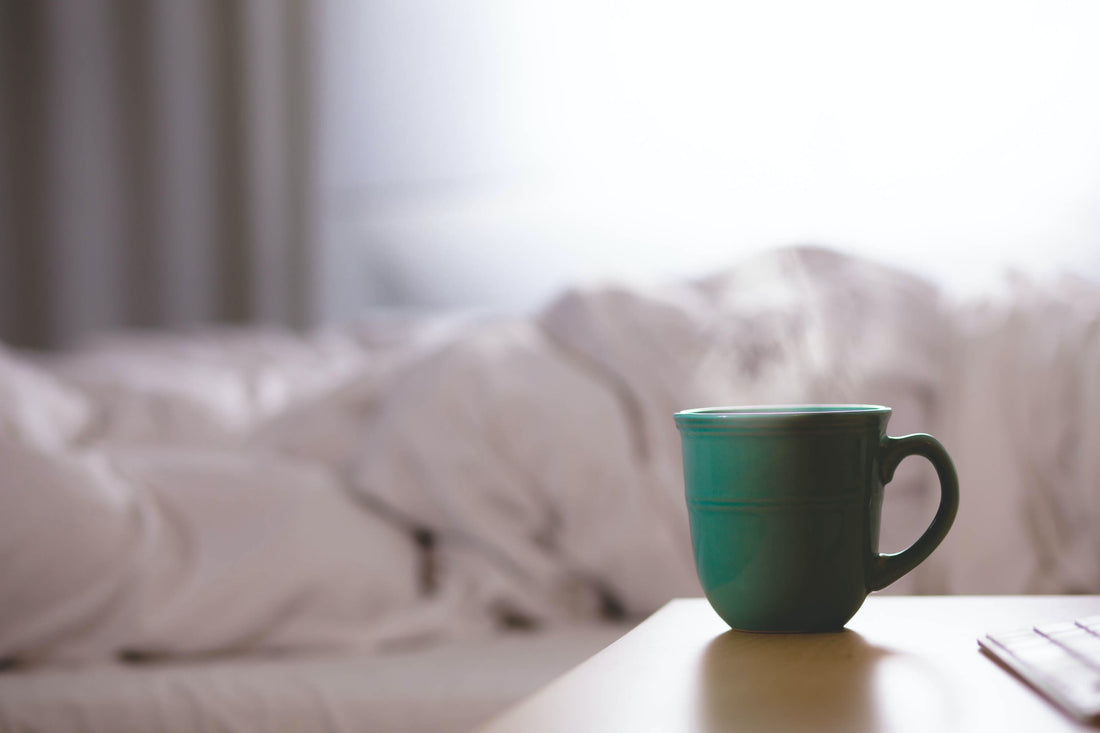Tea has been cherished for centuries not only for its soothing taste but also for its potential health benefits. When it comes to finding relaxation and relief from sleep troubles and anxiety, certain teas have gained a reputation for their calming properties. Let’s explore the world of tea and uncover the best options to help you unwind, find better sleep, and ease anxiety naturally.
Photo by David Mao on Unsplash
Introduction
Seeking solace in natural remedies has gained immense popularity. Tea, with its diverse flavors and unique properties, has become a go-to choice for individuals looking to unwind and find relief from anxiety and sleeplessness.
The Connection Between Tea and Relaxation
Tea is more than just a warm beverage; it's a ritual that offers a sense of calmness and comfort. The process of brewing tea itself can be therapeutic, providing a moment of mindfulness in our busy lives. But beyond the ritualistic aspect, certain teas contain compounds that have been shown to promote relaxation and alleviate anxiety.
Understanding Sleep and Anxiety
Before delving into the world of teas, it's important to understand the relationship between sleep and anxiety. Sleep is a fundamental bodily function that allows us to recharge and heal. Anxiety, on the other hand, can interfere with our ability to fall asleep and stay asleep. It's a vicious cycle: lack of sleep can lead to increased anxiety, and heightened anxiety can disrupt our sleep.
Chamomile Tea: Nature's Tranquilizer
Chamomile tea, often referred to as nature's tranquilizer, has been used for centuries to promote relaxation and improve sleep quality. Its mild sedative effects are attributed to compounds like apigenin, which bind to receptors in the brain, inducing a calming sensation.
Chamomile is a flowering plant that belongs to the daisy family, known scientifically as Matricaria chamomilla or Chamaemelum nobile. It's renowned for its small, daisy-like white flowers with yellow centers and its distinct apple-like fragrance. Chamomile has been used for centuries for its potential medicinal properties and calming effects.
There are two common types of chamomile:
German Chamomile (Matricaria chamomilla)
This variety is native to Europe and is often used for making herbal teas and herbal remedies. Its flowers contain essential oils that contribute to its soothing properties.
Roman Chamomile (Chamaemelum nobile)
Also known as English chamomile, this type is native to Western Europe and is often used in aromatherapy and cosmetic products due to its pleasant scent.
Chamomile is especially popular for its potential to promote relaxation and alleviate stress. It contains various bioactive compounds, including flavonoids and terpenoids, that are believed to contribute to its therapeutic effects. One of the most well-known uses of chamomile is as an herbal tea, often consumed before bedtime to help improve sleep quality and reduce anxiety.
Lavender Tea: A Fragrant Route to Serenity
Lavender is well-known for its soothing aroma, but it can also be consumed as tea. Lavender tea's gentle floral flavor is matched by its potential to reduce anxiety. The aroma alone has been shown to lower heart rate and blood pressure, creating an environment conducive to relaxation.
Valerian Root Tea: Deep Sleep and Calmness
Valerian root tea is celebrated for its ability to enhance sleep quality and reduce anxiety. Valerenic acid, a compound found in valerian, interacts with the brain's GABA receptors, promoting a sense of calmness and tranquility.
Peppermint Tea: Unwinding the Mind
Peppermint tea, known for its refreshing flavor, can also aid in relaxation. The menthol in peppermint has muscle-relaxing properties that can help alleviate tension. A cup of peppermint tea before bedtime may assist in letting go of the day's stressors.
Lemon Balm Tea: An Ancient Remedy Revisited
Lemon balm has been used since ancient times to alleviate stress and promote sleep. Lemon balm tea contains compounds that have a mild sedative effect, making it a valuable addition to your evening routine.
Passionflower Tea: Taming Anxiety's Grip
Passionflower tea is believed to increase levels of gamma-aminobutyric acid (GABA) in the brain, which has a calming effect. It's particularly useful for those dealing with generalized anxiety disorder or occasional anxiousness.
How to Prepare the Perfect Cup of Tea
Brewing tea is an art that requires attention and care. To extract the maximum benefits from your chosen tea, follow these general steps:
- Boil fresh water and let it cool slightly.
- Pour the hot water over your tea leaves or tea bag.
- Let the tea steep for the recommended time.
- Strain or remove the tea bag.
- Enjoy your tea while it's still warm.
Incorporating Tea into Your Daily Routine
Introducing tea into your daily routine can provide a consistent source of relaxation. Consider setting aside a specific time each day to savor a cup of your chosen tea. Whether it's in the morning to start the day on a calm note or in the evening to wind down, this practice can have a positive impact on your overall well-being.
Lifestyle Tips for Improved Sleep and Reduced Anxiety
While tea can be a wonderful aid, complementing it with a healthy lifestyle can enhance its effects. Incorporate these practices into your routine to promote better sleep and reduce anxiety:
- Regular exercise
- Balanced diet
- Mindfulness meditation
- Adequate sleep environment
- Digital detox before bedtime
The Power of Mindfulness and Relaxation Techniques
In addition to tea and lifestyle changes, mindfulness and relaxation techniques can significantly contribute to managing anxiety and improving sleep. Practices such as deep breathing, progressive muscle relaxation, and guided imagery can help you unwind and find tranquility.
FAQs About Tea's Effects on Sleep and Anxiety
Can I drink these teas during the day or only before bed?
You can enjoy these teas throughout the day, but some are more calming and suitable for evening consumption.
Are there any side effects of drinking these teas regularly?
Generally, these teas are safe for most people when consumed in moderation. However, it's recommended to consult a healthcare professional if you have concerns.
How long does it take to experience the benefits of these teas?
The effects can vary from person to person. Some may experience immediate relaxation, while for others, the benefits may accumulate over time.
Can children and pregnant individuals drink these teas?
Certain teas may not be safe for children and pregnant individuals. It's best to consult a doctor before introducing these teas in such cases.
Can I sweeten these teas?
While adding a touch of honey or a natural sweetener is fine, avoid excessive sugar, as it might counteract the tea's benefits.
Conclusion
In a world filled with stressors and uncertainties, finding effective ways to unwind and manage anxiety is crucial. The world of tea offers a range of options that not only taste delightful but also hold the potential to soothe your mind and body. By incorporating the right tea into your routine and adopting a holistic approach to well-being, you can take meaningful steps towards better sleep and reduced anxiety.

